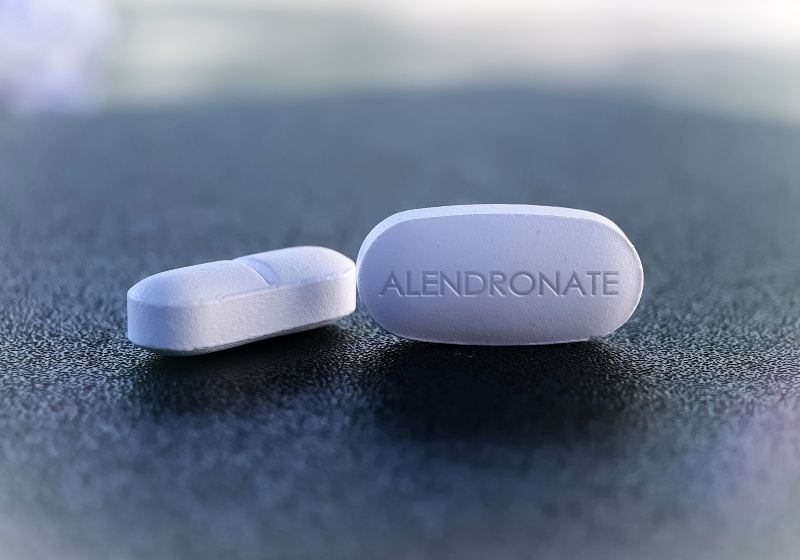Hyperparathyroid symptoms are frequently absent in the early stages of hyperparathyroidism. But what you may not know is that it's already taking a toll on your bones, nervous system, and kidneys.
Let's have a detailed look at what happens when you have overactive parathyroid.
RELATED: Importance of Thymus Gland Stimulation
Hyperparathyroid Symptoms, Causes, Diagnosis, Treatment, and Complications
What Is Hyperparathyroidism?

Hyperparathyroidism is a condition wherein your parathyroid glands become too active. They produce excessive parathyroid hormone or PTH. And when this happens, the calcium level in your bloodstream elevates, a condition called hypercalcemia.
What Are the Parathyroid Glands?

Parathyroid glands and thyroid may have similar names, but they're two different organs.
Both of them are in your neck. But the thyroid is in the front part of your neck, while the parathyroid glands sit at the back part of your thyroid.
Parathyroid glands are four pea-sized endocrine glands. Their sole responsibility is to release PTH.
PTH is a hormone needed by your body to function properly. It helps manage the right balance of vitamins and minerals in your blood and bones, such as:
- Phosphorus
- Calcium
- Vitamin D
Generally, when your calcium level is low, your parathyroid glands react by secreting PTH. It works by:
- causing your bones to release calcium
- helping your intestines to absorb calcium from your diet
- helping your kidneys to keep calcium instead of releasing it through urine
Once the level of calcium is back to normal, your body stops releasing PTH.
Who Is at Most Risk for Hyperparathyroidism?

In the US, around 100,000 people develop hyperparathyroidism every year.
Women, who are in their 60s and in their postmenopausal stage, are at higher risk for this hormonal disorder. In fact, women are affected three to four times more frequently than men. Additionally, this condition is more common among African-Americans, according to a study.
However, hyperparathyroidism may also occur in younger adults. The risk factors are as follows:
- Nutritional deficiency: Calcium and vitamin D deficiencies can give rise to hyperparathyroidism.
- Radiation therapy: If you underwent treatments for your neck in the past, they can affect your parathyroid glands.
- Lithium drug use: This mood stabilizer can also affect your levels of calcium.
What Are the Causes of Hyperparathyroidism?
Hyperparathyroidism has three types–primary, secondary, and tertiary.
Primary Hyperparathyroidism

In this condition, at least one of your parathyroid glands is overactive and enlarged. The causes include:
- Parathyroid adenoma: This is one of the most common causes of primary hyperparathyroidism. In this case, there's a benign or non-cancerous tumor in one of your parathyroid glands.
- Hyperplasia: Your parathyroid gland may have the excessive number of cells, which leads to an increase in its size.
- Parathyroid carcinoma: Cancerous cells may have formed in your parathyroid glands.
Secondary Hyperparathyroidism

In this type of hyperparathyroidism, other deficiencies or conditions cause low calcium levels. This stimulates your parathyroid glands to increase your calcium level. And when this happens all the time, your parathyroid glands become enlarged.
Some of the causes include:
- Malabsorption: When your gut has problems, it prevents your body to absorb calcium from the food you eat. This leads to a low level of calcium.
- Chronic kidney disease: If you're on long-term kidney dialysis, your level of calcium can also become low.
- Vitamin D deficiency: Vitamin D helps in calcium absorption. And a lack of it can result in low calcium levels.
Tertiary Hyperparathyroidism

When your secondary hyperparathyroidism is persistent, it can lead to tertiary hyperparathyroidism.
In this condition, your level of calcium has already become normal. But your parathyroid glands still continue to secrete PTH.
This means that they're functioning by themselves. And they no longer respond according to your calcium level.
Your body can't “switch off” your parathyroid glands anymore. This causes a rise in your calcium level.
Usually, tertiary hyperparathyroidism is common among individuals with stage five chronic kidney disease.
RELATED: High Triglycerides and Pancreatitis | What Causes Hypertriglyceridemia and How to Fix It
What Are the Signs of Hyperparathyroidism?

Hyperparathyroid symptoms may vary, depending on the severity of your condition. Additionally, they don't seem to be associated with the functions of your parathyroid glands.
Individuals with primary hyperparathyroidism either have mild or no symptoms. The range of signs and symptoms include:
- Extreme fatigue
- Joint pain
- Depression
- Difficulty concentrating
- Muscle weakness
On the other hand, if you have severe hyperparathyroidism, you may feel the following symptoms:
- Appetite loss
- Excessive thirst and frequent urination
- Nausea and vomiting
- Constipation
- Memory loss
- Bone pain
- Cardiac rhythm disturbances
- Hypertension
What Tests Can Diagnose Parathyroid Disease?

Since hyperparathyroid symptoms can be missing, you may not think of getting checked.
Most of the time, a blood test can detect hyperparathyroidism. Your blood test results will show that you have high PTH and calcium level.
For a more accurate diagnosis, your doctor might instruct you to undergo other tests, including:
- Bone mineral density test: This test checks the amount of calcium you have in your bones. It also shows if you're experiencing bone loss.
- Urinalysis: This test shows how well your kidneys function and how much calcium is in your urine.
- CT scan, x-ray, and ultrasound: These scans can identify blockages in your body caused by hypercalcemia.
How Is Hyperparathyroidism Treated?
The treatment of hyperparathyroidism depends on the type of condition you have.
Primary Hyperparathyroidism

Hyperparathyroidism Medication
- Cinacalcet: If you can't undergo surgery due to other medical conditions, you may take this tablet. It signals your parathyroid glands to reduce PTH production. However, you might experience side effects with this drug, such as nausea, diarrhea, and muscle pain.
- Bisphosphonates: These medicines help prevent calcium loss. They also lessen your risk of osteoporosis and bone fracture. You can use them for short-term treatment.
What to avoid
- Thiazide diuretics: These water tablets can treat hypertension. But they can increase your calcium level.
Surgery
You may undergo surgery, called parathyroidectomy, to remove your abnormal parathyroid glands. If all of them aren't working, your doctor might remove only three and a half. This way, you'd still have a part of the parathyroid organ present in your body.
Secondary Hyperparathyroidism

Hyperparathyroidism Medication
- Cholecalciferol: When you have secondary hyperparathyroidism, you're more likely deficient in vitamin D. You can correct your vitamin D level with this dietary supplement.
- Cinacalcet: You may also take this medicine when you have secondary hyperparathyroidism to control your condition.
Surgery
You might consider a surgery to remove your parathyroid glands in case your body doesn't respond to medical treatment.
Tertiary Hyperparathyroidism

Surgery
Ideally, tertiary hyperparathyroidism won't develop anymore after treating your secondary hyperparathyroidism. But if this condition still develops, surgery is the primary treatment.
What Happens if Hyperparathyroidism Is Not Treated?

Hyperparathyroidism can affect the other organs in your body, such as:
- Pancreas: When you have a high calcium level, you may develop pancreatitis. This is a condition wherein your pancreas becomes inflamed.
- Stomach: Too much calcium can cause your stomach to produce excess acid. This may result in a disease called peptic ulcer.
- Bones: When you have elevated parathyroid hormones, it prompts your bones to release calcium into your blood. And when the calcium in your bones is low, it can lead to weakened bones or osteoporosis.
Check out this video by Simple Nursing to learn about the difference between hyperparathyroidism and hypoparathyroidism:
Hyperparathyroidism affects individuals in different ways. Some may have mild to severe symptoms, while others may not experience anything at all.
Keep in mind that this disease must be diagnosed immediately. If left untreated, your condition may even get worse and result in complications.
What hyperparathyroidism medication are you currently taking? Have you experienced any side effects? Please share your experience with us in the comment section below!
Up Next:
- What You Need to Know About Your Adrenal Glands
- What Medications Can Raise Blood Sugar Levels?
- Testicular Cancer Survivor, Matt Ode, Shares His Story of Hope, Purpose, and “Winning the Day” [PODCAST]
Calling all Health Buffs! If you’ve got the gift of keeping healthy and sharing this knowledge through writing, click here if you want to write for us.
Please stay connected with us on Facebook, Twitter, Instagram, and Pinterest, and make sure to join our community of healthy living and minded people here.
Trending
Get Updates
SIGN UP FOR OUR NEWSLETTER TODAY


How to Improve Your Skin With Chlorella Algae

